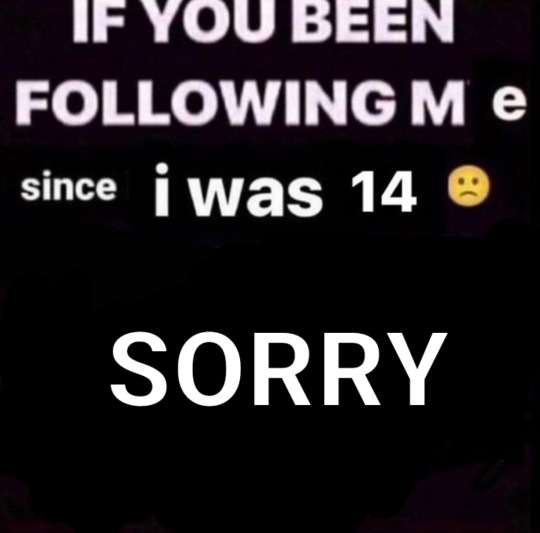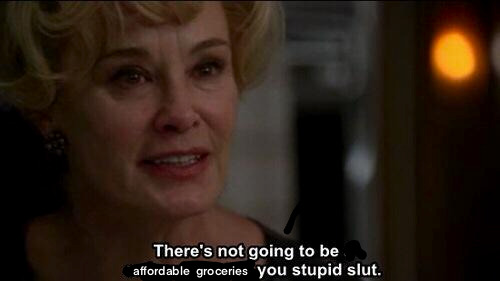Text
do things you “grew out of”. jump in puddles, bake cookies with your mom, build something from legos, have a disney movie marathon, draw without any final product in mind, read a cringe-worthy YA novel, finger paint, sword fight and cast spells with sticks, chase after fireflies and butterflies, write dramatic diary entries, build pillow forts, sample multiple flavors of ice cream on the little spoons, roll down hills on sunny days, go sledding when there’s snow, never stop dreaming big.
6K notes
·
View notes
Text

#gender stuff#when I was a kid I knew I was strong and capable and pretty independent#just like my mom#so feminine stereotypes didnt make sense to me#at some point I rejected femininity completely and went full tomboy#I pretended to hate pink and dresses even though I did enjoy them#and I threw myself fully into being as dirty and feral as possible because I loved it#I relearned femininity later on and used it as a weapon and defence mechanism#but now I've re-learned to embrace it in a good way too#I've never fully understood my gender situation#but I like finding posts like this that make me go hmmm
26K notes
·
View notes
Text
Fungi make worlds; they also unmake them. There are lots of ways to catch them in the act: when you cook mushroom soup, or just eat it; when you go out gathering mushrooms or buy them; when you ferment alcohol, plant a plant, or just bury your hands in the soil. And whether you let a fungus into your mind, or marvel at the way that it might enter the mind of another; whether you're cured by a fungus, or watch it cure someone else; whether you build your home from fungi, or start growing mushrooms in your home, fungi will catch you in the act. If you're alive, they already have.
Merlin Sheldrake, Entangled Life: How Fungi Make Our Worlds, Change Our Minds, And Shape Our Futures
5K notes
·
View notes
Text
Me: What are you going to name your son?
Him: Let the grieving families of his enemies name him. Let him earn his name in blood.
0 notes
Text
straigbt up "under it" and by "it" well lets jusr say, my blankeys
56K notes
·
View notes
Text
what the fuck what the fuck what the fuck. ive been drinking a cup of electrolyte water a day for just over a week and i have. so much more energy. im not tired all the time??? im doing chores like it's nbd?? what the fuck. why did no one tell me abt this years ago.
21 notes
·
View notes
Text
open image in new tab was there for me when no one else was
36K notes
·
View notes
Text
We've been working with toddler on using his words instead of screaming when something happens that he doesn't like
Which has lead to:
Toddler, upon accidentally dropping a toy: ANGER ANGER ANGER!
40K notes
·
View notes
Text
I was gonna go drumming tonight but I got kidnapped and ended up going to a paint night. Last week they sculpted boobies, this week we painted glasses of beer, and in 2 weeks we're doing male nudes. It's all a fundraiser for the facilitator to bring 30 high school students on a trip to Europe, so I'm pretty excited about it despite having no interest in glasses of beer.
0 notes
Text
The binooji's too small to feel moving around yet, but boy are they full of rigor! A strong heartbeat (especially compared to others at this stage, who sometimes find difficulty in detecting the heartbeat by sound alone) and plenty of movement! The heartbeat sounds were actually interrupted by a strange loud WHOOSH which was just the jellybean jumping around. The bloodwork looks good, too. My iron and glucose are great, and nothing out of the ordinary. Next up: testing for chromosomal abnormalities.
0 notes
Text
This sounds like British sitcom Black Books, and I feel like more people need to know about it.
“what’s your dream job” im so glad you asked. picture this. i am the lone employee of a strange and mysterious tchotchke/bookshop in the middle of nowhere, full of fun and interesting things that i am allowed to take for the low low price of free of charge. i get one, exceedingly interesting, customer per hour. i work no more than twenty hours a week and am salaried 3 million dollars
27K notes
·
View notes
Text

More of THIS energy.
House and Senate Democrats need to lead.
14K notes
·
View notes
Text
alright so Pangur got her claw stuck while rolling over in bed, and then just GAVE UP, which led to her being horizontally flattened in a way that gives her impossible girth and...... I'll share, but just know that it's an optical illusion. please. I swear to god she's a healthy weight. I mean, a little chubby, but not like this.
37K notes
·
View notes



